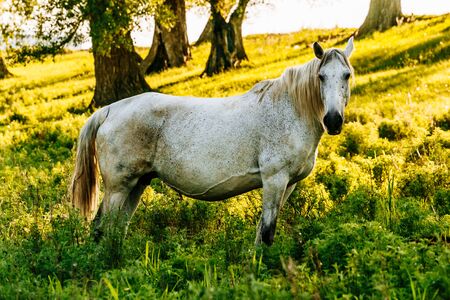Introduction: Reinventing British Classics on the Campfire
There’s something uniquely British about gathering round a crackling campfire, cuppa in hand, and tucking into a hearty meal after a day spent outdoors. Yet, as camping evolves with lighter gear and modern sensibilities, so too does the food we bring along. The days of bland tins and basic beans are giving way to a new wave of culinary creativity—one that honours classic British flavours while embracing the convenience and efficiency demanded by life under canvas. This article sets out to explore how beloved staples like shepherd’s pie, stew and dumplings, or even the humble full English can be cleverly reimagined for one-pot cooking over open flames. With just a single pot and a bit of ingenuity, today’s campers can enjoy comforting, flavourful dishes that nod to tradition without sacrificing ease or taste. We’ll look at how modern campers are giving these classics a fresh twist, making them accessible whether you’re pitching up in the Lake District or wild camping along the Cornish coast.
Essential Kit for the British One-Pot Camper
When it comes to preparing innovative one-pot meals inspired by British classics in the great outdoors, having the right kit is absolutely crucial. The British countryside is famed for its unpredictable weather and varied terrain—from soggy moorlands to rocky coastlines—so practicality must be at the heart of your gear selection. Here’s a quick guide to what you’ll need, along with some tips for prepping hearty meals efficiently, rain or shine.
Must-Have Gear: Practicality Meets British Resilience
| Item | Why It Matters | Recommended Features |
|---|---|---|
| Sturdy One-Pot Cooker | Central to all recipes; withstands wind and drizzle | Windshield, adjustable flame, fuel efficiency |
| Lightweight Lidded Pot | Keeps heat in, versatile for stews and bakes | Non-stick surface, secure lid, easy pour spout |
| Insulated Mug & Bowl Set | Retains warmth, doubles as prep and serving ware | BPA-free, stackable, easy to clean |
| Folding Utensils (Spork/Knife) | Saves space and weight in your pack | Stainless steel or titanium, locking mechanism |
| Pocket Chopping Board & Small Knife | Makes prepping veg or slicing bread simple on uneven ground | Non-slip grip, foldable design for easy packing |
| Reusable Waterproof Bags/Containers | Keeps ingredients dry and safe from wildlife or rain showers | Airtight seal, lightweight, clear sides for visibility |
| Fireproof Gloves & Tea Towel | Safety and practicality when handling hot pots or wiping condensation away during a downpour | Heat-resistant material, fast-drying fabric |
Packing for All Weathers: British Realities
The art of British camping cookery lies in preparation. Make sure your kit fits neatly into a rucksack and can withstand both mud and mist. Waterproof everything that matters—dry tinder in ziplock bags for those classic smoky flavours, matches in a tin, and always have a backup fire starter. A compact tarp serves as a makeshift shelter when the heavens open unexpectedly.
Efficient Meal Prep Tips for the Wilds of Britain
- Pre-chop Veg at Home: Save time (and cold fingers) by prepping onions, carrots or potatoes before you leave. Store them in labelled reusable bags.
- Batch Your Spices: Mix your favourite blends (think herby sage for stew or warming curry powder) into small containers—no faffing with multiple jars.
- No-Fuss Clean-Up: Choose utensils that rinse easily with minimal water. Bring a biodegradable soap just in case.
- Plan Simple Menus: Stick to recipes that use overlapping ingredients to keep things streamlined. For example, leftover sausage from breakfast can go straight into an evening casserole.
The Modern Camper’s Edge: Adaptability & Ingenuity
The best part of modern camping is making traditional British dishes your own—be it a one-pot Lancashire hotpot simmering over a gas stove or a veggie-packed bubble and squeak cooked up after a day’s walk through the Dales. With the right kit and a touch of pre-trip organisation, even the most blustery day becomes an opportunity for culinary creativity in the wild British landscape.
![]()
3. Hearty Stews Reimagined: From Lancashire Hotpot to Modern One-Pot Wonders
When it comes to British camping cuisine, few dishes evoke a sense of home and comfort quite like a hearty stew. Traditionally, meals such as Lancashire Hotpot or Scotch Broth would require hours of slow cooking and a full kitchen’s worth of pots. However, today’s modern camper is all about efficiency and flavour, seeking ways to recreate these classics in one pot—without sacrificing their soul-warming essence.
The key lies in smart ingredient choices and streamlined methods. For instance, swapping out bone-in lamb for diced shoulder speeds up the cooking time while still delivering richness. Adding root vegetables like carrots and parsnips not only bulks out the meal but also provides the natural sweetness that develops quickly over a camp stove or portable hob. Many campers now incorporate tinned beans or lentils for extra protein and heartiness—an affordable, shelf-stable twist on tradition.
Instead of laboriously layering potatoes as in a classic hotpot, consider slicing them thinly and nestling them right into the stew itself. This allows the flavours to meld beautifully, and there’s no need for separate baking. A sprinkle of dried thyme or a splash of Henderson’s Relish (a Yorkshire staple) gives an unmistakably British touch without fuss.
For those with adventurous palates, try adding a handful of wild garlic leaves (when in season) or a spoonful of wholegrain mustard just before serving. These small tweaks keep the dish fresh and vibrant while respecting its roots. Best of all, clean-up is minimal—a single pot to wash up at the end of a long day outdoors.
Modern one-pot wonders prove that you don’t have to compromise on comfort food when camping. With a little creativity and respect for classic flavours, British stews can become both practical and innovative companions on your next adventure.
4. Potatoes, Peas, and Beyond: The Best of British Sides in a Single Pot
When it comes to British classics, no meal feels complete without the familiar comfort of sides like creamy mash, minted peas, or the iconic bubble and squeak. For the modern camper seeking both tradition and convenience, these beloved accompaniments can be cleverly fused into your main one-pot dishes—no separate pans required. Here’s how you can reimagine classic sides within your campsite cooking repertoire.
Integrating Classic Sides: Techniques and Tips
With limited equipment and time, blending sides into your main dish isn’t just practical—it’s deliciously efficient. Start by considering the cooking times and textures of each component. Root vegetables like potatoes hold up well in stews, while quick-cooking peas can be added towards the end for a fresh pop of colour and flavour. For bubble and squeak-inspired meals, use leftover cooked veg (think cabbage, carrots, sprouts) and sauté them with chopped potatoes directly in your pot after browning any meat or onions.
One-Pot Fusion Table: Traditional Sides Reimagined
| Classic Side | One-Pot Integration Technique | Suggested Main Dish Pairing |
|---|---|---|
| Mash (Potatoes) | Add diced potatoes early; simmer until soft, then mash into stew base for a thick texture. | Sausage & Bean Stew |
| Bubble and Squeak | Sauté mixed leftover veg with potatoes; fold into a hash within your main pot post-browning meat. | Bacon & Veg Hash |
| Minted Peas | Toss frozen peas and fresh mint in during last 5 minutes of cooking for vibrant flavour. | Lamb & Barley Hotpot |
| Baked Beans | Add beans with their sauce mid-way for extra richness and protein boost. | Full English Breakfast Stew |
Cultural Note: Blending Tradition with Practicality
The heart of British camp cookery is resourcefulness—making do with what you have while honouring familiar tastes. By merging these classic sides into your one-pot meals, you not only save on washing up but also create deeply flavoured dishes that feel unmistakably British. Whether you’re on Dartmoor or the Lake District, bringing together spuds, greens, and pulses in a single vessel is as much about nostalgia as it is about nourishment.
5. Brew and Pudding: Rethinking the Sweet and the Satisfying
When it comes to rounding off a day outdoors, few things evoke British comfort like a warm pudding or a proper brew. Yet traditional favourites—think classic custards, sticky toffee puddings, or even a simple bread and butter pudding—don’t seem tailor-made for campfire cooking at first glance. But with a bit of ingenuity, you can reinvent these classics as one-pot wonders that taste just as satisfying under the stars as they do at home.
The Simple Art of Camp Custard
Forget the faff of double boilers and water baths; all you need is a sturdy pot with a lid. Whisk together eggs, milk, sugar, and a splash of vanilla in your pot, then gently heat over low flame, stirring until it thickens. If you’re feeling adventurous, crumble in some digestive biscuits or leftover cake for an impromptu trifle-style treat.
Bread and Butter Pudding on the Go
Repurpose stale bread by layering it with raisins and pouring over a quick egg-milk mixture (plus any odds and ends of chocolate you have). Cover tightly and let it cook gently on the embers, turning occasionally for even warmth. The result? A soft-centred pudding with crispy edges—a proper taste of home wherever you are.
One-Pot Brewed Delights
No British meal is complete without tea. Pop your favourite bags into a pan of freshly boiled water, let them steep while your pudding sets, and serve alongside for that authentic finish. And if you want to get creative, try simmering apples or berries in your tea to make a fruity compote—perfect spooned over your camp custard or pudding.
Top Tips for Sweet Success
Keep ingredients simple: long-life milk, dried fruit, and store-cupboard spices like nutmeg or cinnamon travel well. Embrace improvisation—British puddings are forgiving by nature. Most importantly, don’t rush; slow cooking brings out those familiar comforting flavours. Whether by the firepit or on a single gas burner, these adapted classics offer not just sustenance but a slice of British nostalgia in every bite.
6. Tips, Tricks, and Sustainable Practices for UK Campsites
When cooking modern takes on British classics in the great outdoors, a little preparation and mindfulness go a long way in preserving both the environment and your camping experience. Here are practical pieces of advice to help you cook well, source responsibly, and leave no trace at UK campsites.
Eco-Friendly Cooking Approaches
Opt for reusable or lightweight cookware such as stainless steel or enamel pots, which stand up to repeated use over open flames or portable stoves. Consider using gas canisters or efficient fuel sources to minimise smoke and avoid collecting firewood from the site—this preserves natural habitats. Pack biodegradable soap and a small sponge for cleaning up without harming local waterways.
Sourcing Ingredients Locally
Support regional farmers’ markets or village shops en route to your campsite for fresh, seasonal produce and locally-reared meats. Many areas in the UK have excellent farm shops selling everything from root vegetables to free-range eggs—ideal for hearty one-pot meals like stews or bakes. Not only does this reduce food miles, but it also lets you enjoy authentic flavours tied to the local landscape.
Plan Ahead to Avoid Waste
Prepare meal portions carefully and store ingredients in reusable containers. This reduces packaging waste and ensures you bring only what you need. If possible, compost vegetable scraps at home before setting off, or pack them out if facilities aren’t available at the site.
Campsite Etiquette: Leave No Trace Dining
Always check campsite rules regarding fires and cooking. Stick to designated cooking areas when possible, and never leave food scraps behind—these attract wildlife and disrupt natural behaviours. After your meal, thoroughly clean pots and utensils away from water sources, disposing of any grey water as directed by site guidelines.
Respect Others While Enjoying Your Meal
Be considerate of noise levels during early mornings or late evenings; even the sizzle of a pot can carry in tranquil settings. Share extra portions with fellow campers if appropriate—it’s a wonderful way to foster community spirit around the campfire while minimising waste.
A Modern Camper’s Legacy
By embracing these sustainable practices alongside your innovative one-pot recipes, you’ll not only savour delicious British classics but also ensure that these beautiful landscapes remain unspoilt for generations of campers to come.


